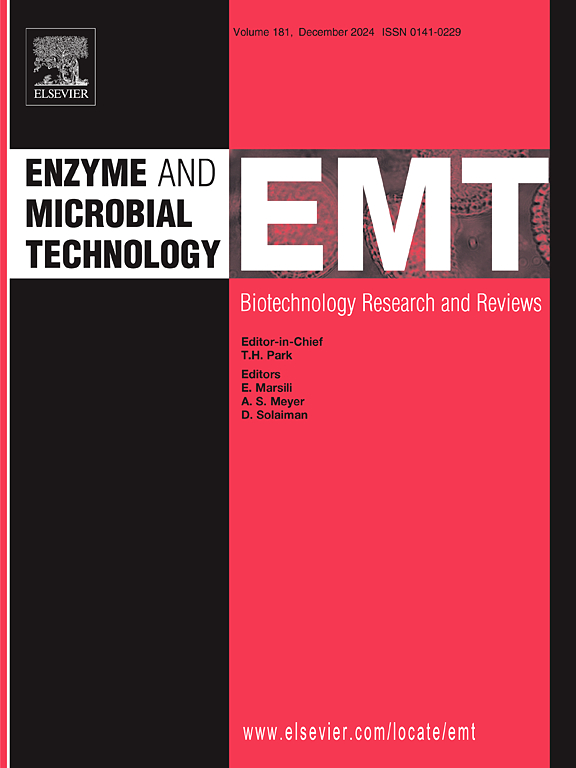Towards consolidated bioprocessing of biomass and plastic substrates for semi-synthetic production of bio-poly(ethylene furanoate) (PEF) polymer using omics-guided construction of artificial microbial consortia
Abstract
Poly(ethylene furanoate) (PEF) plastic is a 100% renewable polyester that is currently being pursued for commercialization as the next-generation bio-based plastic. This is in line with growing demand for circular bioeconomy and new plastics economy that is aimed at minimizing plastic waste mismanagement and lowering carbon footprint of plastics. However, the current catalytic route for the synthesis of PEF is impeded with technical challenges including high cost of pretreatment and catalyst refurbishment. On the other hand, the semi-biosynthetic route of PEF plastic production is of increased biotechnological interest. In particular, the PEF monomers (Furan dicarboxylic acid and ethylene glycol) can be synthesized via microbial-based biorefinery and purified for subsequent catalyst-mediated polycondensation into PEF. Several bioengineering and bioprocessing issues such as efficient substrate utilization and pathway optimization need to be addressed prior to establishing industrial-scale production of the monomers. This review highlights current advances in semi-biosynthetic production of PEF monomers using consolidated waste biorefinery strategies, with an emphasis on the employment of omics-driven systems biology approaches in enzyme discovery and pathway construction. The roles of microbial protein transporters will be discussed, especially in terms of improving substrate uptake and utilization from lignocellulosic biomass, as well as from depolymerized plastic waste as potential bio-feedstock. The employment of artificial bioengineered microbial consortia will also be highlighted to provide streamlined systems and synthetic biology strategies for bio-based PEF monomer production using both plant biomass and plastic-derived substrates, which are important for circular and new plastics economy advances.

 求助内容:
求助内容: 应助结果提醒方式:
应助结果提醒方式:


